Thousands of years of Buddhist rituals
Venerable Thich Thanh Dong, Chief of the Office of the Executive Committee of the Vietnam Buddhist Sangha in the province, Abbot of Non Nuoc Pagoda, said that according to Buddhist history, Vu Lan festival has existed since the time of Buddha. In the Vu Lan Bon Sutra, it is said that Venerable Maudgalyayana was one of the Buddha's many disciples, with the first position of supernatural power, Venerable was included in the ten great disciples of Buddha. Before becoming a monk, his name was La Boc, the son of Mr. Pho Tuong and Mrs. Thanh De. Mrs. Thanh De was a person who did not have faith in the Three Jewels, always doing things against her conscience, causing much suffering to others. After she passed away, she was condemned to Hell to suffer much pain. La Boc kept his filial piety to his mother for three full years. He then became a disciple of Buddha.
After becoming a monk, he attained supernatural powers and thought of his parents' kindness. He used his supernatural powers to go to the heavens to find his mother, but could not find her. He returned to tell the Buddha. The Buddha immediately said that his mother had committed many evil deeds in her lifetime, so after death she had to fall into hell and suffer many tortures. Maudgalyayana immediately went to hell to find his mother. Passing through the hells, he saw many scenes of suffering that sentient beings had to endure in hell. When he arrived at a hell he could not enter, so he returned to tell the Buddha. The Buddha said that his mother was in there. If he wanted to enter, he had to use his stick and robe.
The Buddha allowed him to go down to that prison and meet his mother. They were both happy and sad, but after a short while of talking to each other, the jailer ordered Thanh De to be taken away to be punished. Before she had to go, Thanh De told Muc Lien to go back and ask Buddha to save her. Muc Lien followed that and asked Buddha to save her mother. Buddha compassionately told Muc Lien that the fifteenth day of the seventh lunar month was the day of Tu Tu for the monks after 3 months of retreat, so he should sincerely prepare a ceremony to make offerings to the monks and rely on the supernatural power of the monks to dedicate the merit to Thanh De. Thanks to the blessings of the monks, Thanh De escaped from suffering and was born into a peaceful realm. Mauc Lien asked the Buddha if he could use this method to repay the kindness of his parents. The Buddha allowed the means to repay the kindness of his parents. The Vu Lan ceremony of filial piety originated from that time.
From the venerable story of Bodhisattva Maudgalyayana saving his mother from the realm of hungry ghosts, Vu Lan festival has become an occasion to remember the merits and show filial piety towards parents and ancestors in this life and previous lives. In addition to its religious significance, Vu Lan festival also has many profound meanings, reminding each person of their national origin, filial piety tradition, and respect for ancestors.
During each Vu Lan season, pagodas in our province often organize activities such as: preaching about the meaning of Vu Lan, organizing Vu Lan performances, the rose pinning ceremony, giving charity gifts, organizing animal releases, chanting sutras to pray for the deceased, and dedicating merits to parents, ancestors, etc. Families who do not have the conditions to go to the pagoda can organize Vu Lan ceremonies at home. Everyone gathers, lights incense sticks to remember the deceased, and prays for parents, relatives, and heroic martyrs who sacrificed for the peace of the homeland and country.
Filial piety is a journey
Also according to the sharing of Venerable Thich Thanh Dong, Abbot of Non Nuoc Pagoda (Ninh Binh City), Chief of Office of the Executive Committee of the Vietnam Buddhist Sangha in the province, Buddha taught that "A filial heart is a Buddha's heart, filial conduct is a Buddha's conduct". Or in the Patience Sutra, Buddha also taught: "The ultimate good is filial piety, the ultimate evil is unfilial piety". Therefore, the word "filial piety" is not only expressed in the Vu Lan season of July, but in any stage of life, we must do well, to fulfill the duties of a child. Filial piety creates the body, nurtures the mind, and imparts good values. Sometimes, in life, being swept away by worries about food and clothing, forgetting the waiting and anxiety of parents, July with roses pinned on the lapel will be a reminder for us to turn to our parents more.
Every Vu Lan season, Ms. Bich Ha (Ninh Binh city) always goes to the Buddha's gate to show gratitude, praise and commemorate her ancestors. This Vu Lan season, Ms. Bich Ha said she is very happy because she still has a bright red rose on her chest - a symbol of completeness and having a full set of parents. To repay the kindness of giving birth, she always tries to live a good life so that her parents do not have to worry. She lives positively, sincerely and does many useful things for the community. However, life is inherently busy, with many ups and downs, so sometimes she has not fulfilled her filial piety in the simplest sense, which is not spending much time close to and gathering with her parents.
"Time waits for no one. My parents have grown old over the years. Vu Lan season reminds me that I still have my parents to take care of and repay. I will often return to my hometown and lean on my parents' lap. I will spread a flower mat in the yard, and rest my head on my mother's lap, to be caressed and put to sleep by my mother like when I was a child, in the cool breeze, in the middle of a fragrant garden of areca flowers, night-blooming jasmine flowers, dragon claw flowers... that is the fragrance of the origin, of the creator. The greatest happiness of a parent is probably just when I can welcome my children home, and hold them in my arms" - Ms. Ha said.
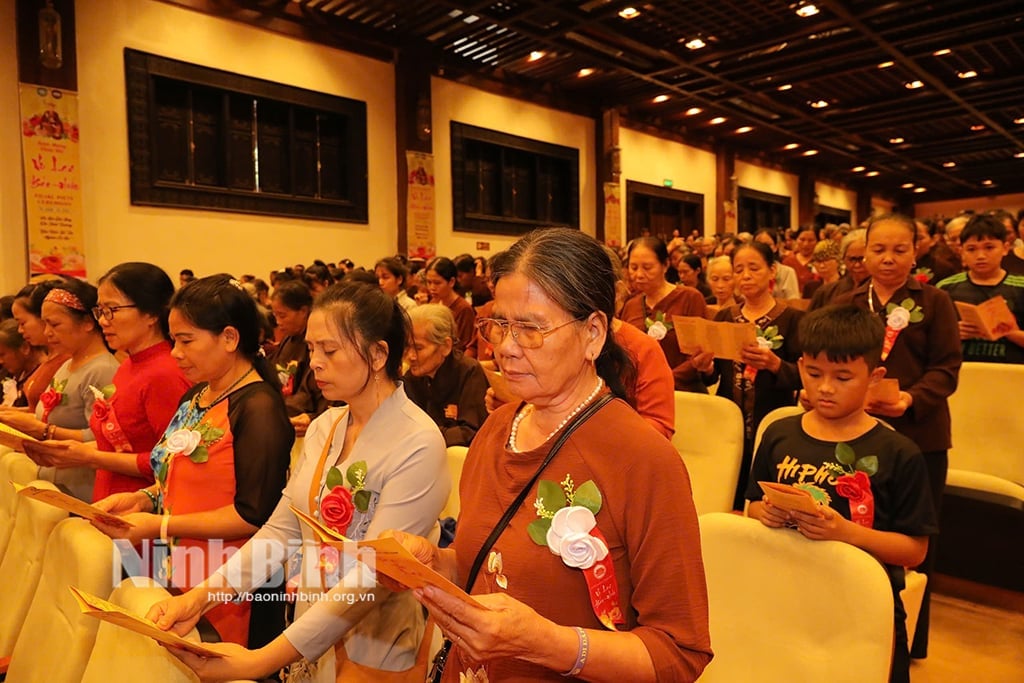
Tien Pagoda, Hung Tien Commune (Kim Son District) is located in the middle of a peaceful countryside. But unlike the quietness of many other pagodas, here, behind the pagoda gate, there are the sounds of playing and teaching each other lessons of the less fortunate children. Although they are not blood relatives, these children are close and attached like family members in a happy home.
Nun Thich Dam Quy, Abbot of Tien Pagoda, said that in addition to carrying out meaningful and familiar activities during Vu Lan season such as: Preaching the meaning of Vu Lan ceremony; chanting sutras; releasing animals, giving gifts to the needy... the pagoda also regularly spreads the spirit of "mutual love and support" to Buddhists through volunteer work, contributing to building a compassionate community. Currently, the pagoda is raising 4 children in especially difficult circumstances. Although the children lack the love of their fathers and mothers, they are still full of the love of the community. More importantly, the children are nurtured with compassion and filial piety that grows over the years. They do not have anger or resentment when they are not cared for by the love of their parents.
Nun Thich Dam Quy shared more: When sending children to Buddhism, it must be the last resort for parents. Perhaps, they are also very painful when they have to leave their children. Therefore, I still hope that one day, if life is better, they will find their way back to their children. I also want to tell the children's parents - if they are still alive and those who are about to become fathers and mothers - to let their children wear a bright red rose on their chest - the color of the flower full of love from their parents. Wherever they are, children still crave the love and care of their parents, want to rely on their parents to nurture their filial piety.
Dao Hang - Minh Quang
Source: https://baoninhbinh.org.vn/le-vu-lan-loi-nhac-nho-ve-long-hieu-hanh/d20240816163019352.htm


![[Photo] General Secretary To Lam receives Russian Ambassador to Vietnam](https://vstatic.vietnam.vn/vietnam/resource/IMAGE/2025/4/2/b486192404d54058b15165174ea36c4e)

![[Photo] Third meeting of the Organizing Subcommittee serving the 14th National Party Congress](https://vstatic.vietnam.vn/vietnam/resource/IMAGE/2025/4/2/3f342a185e714df58aad8c0fc08e4af2)



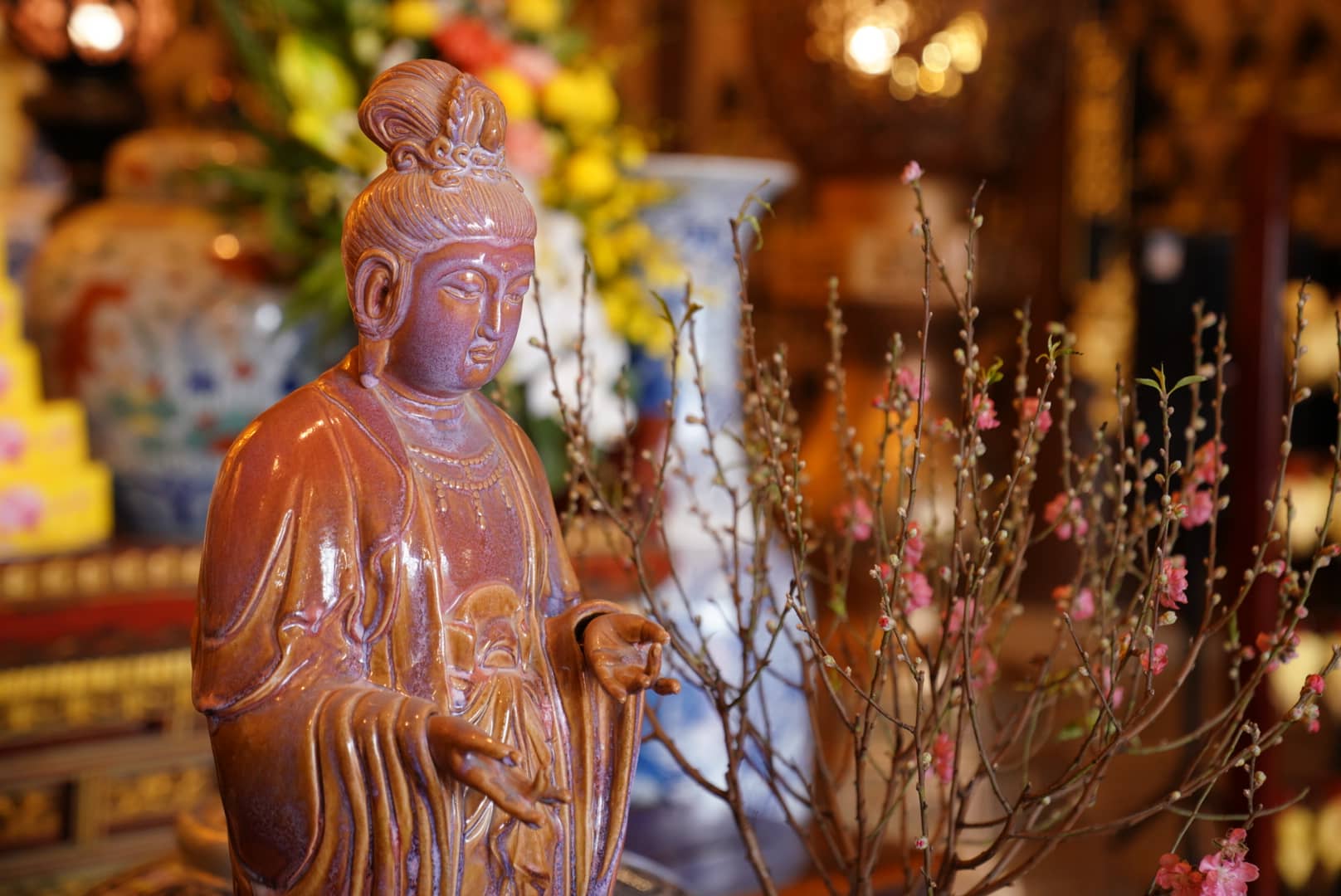



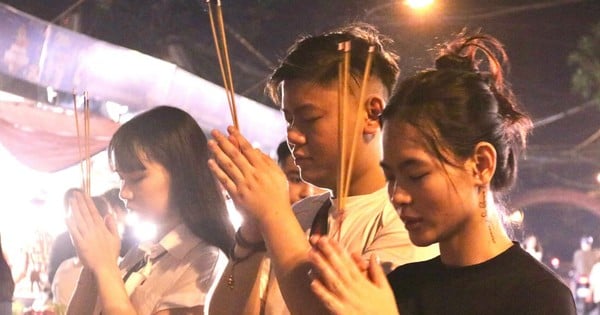

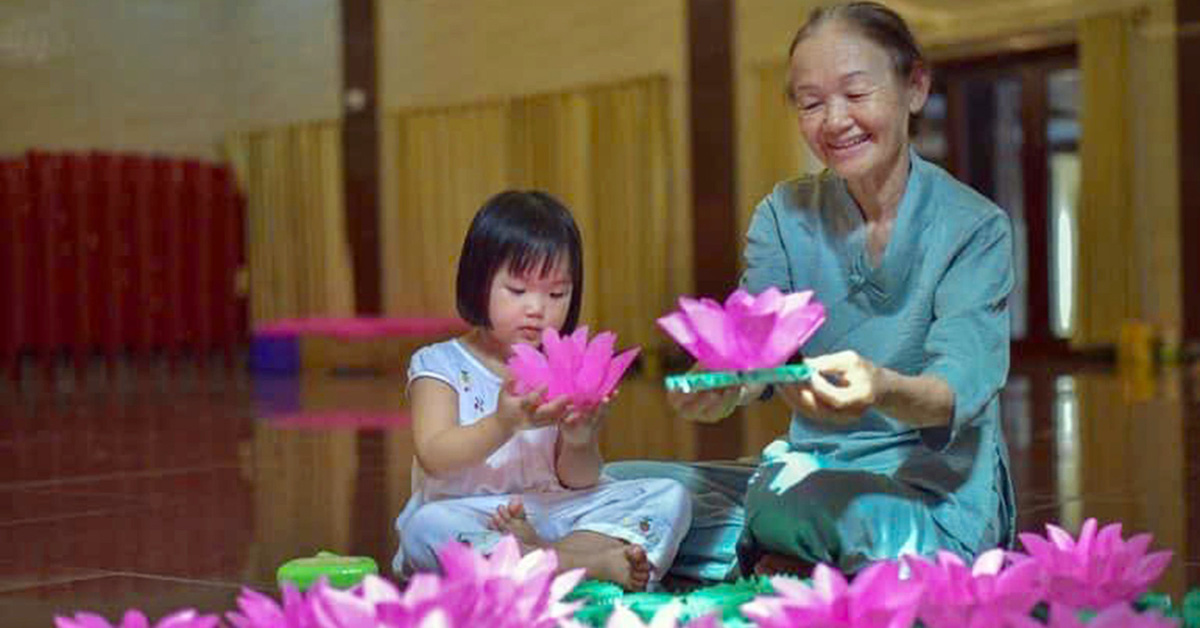

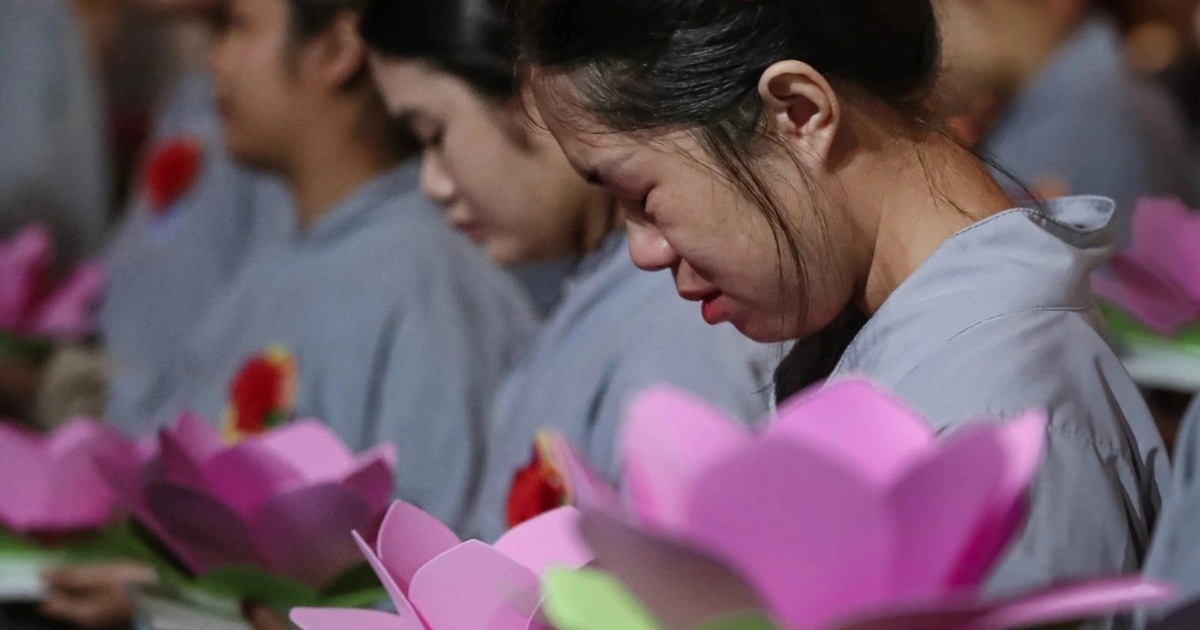

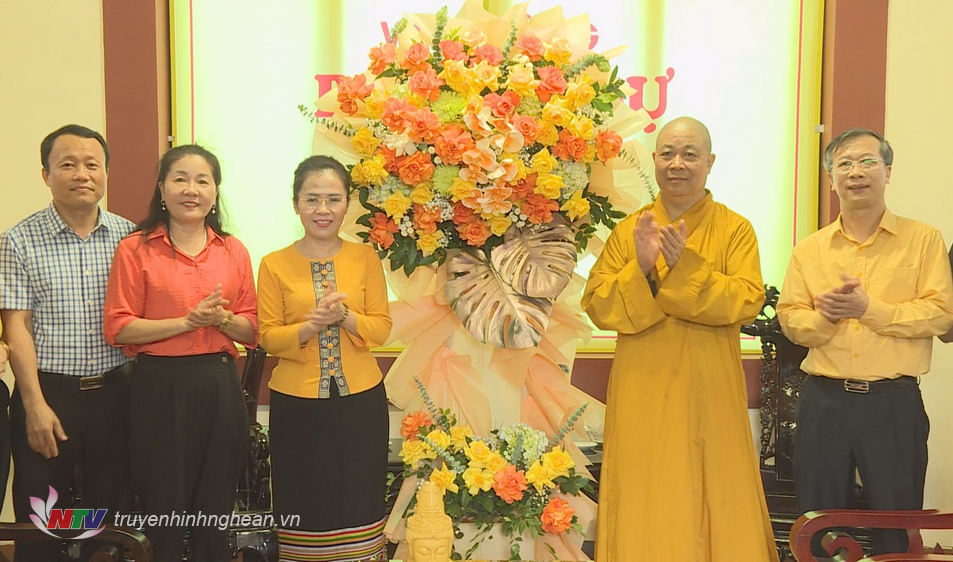
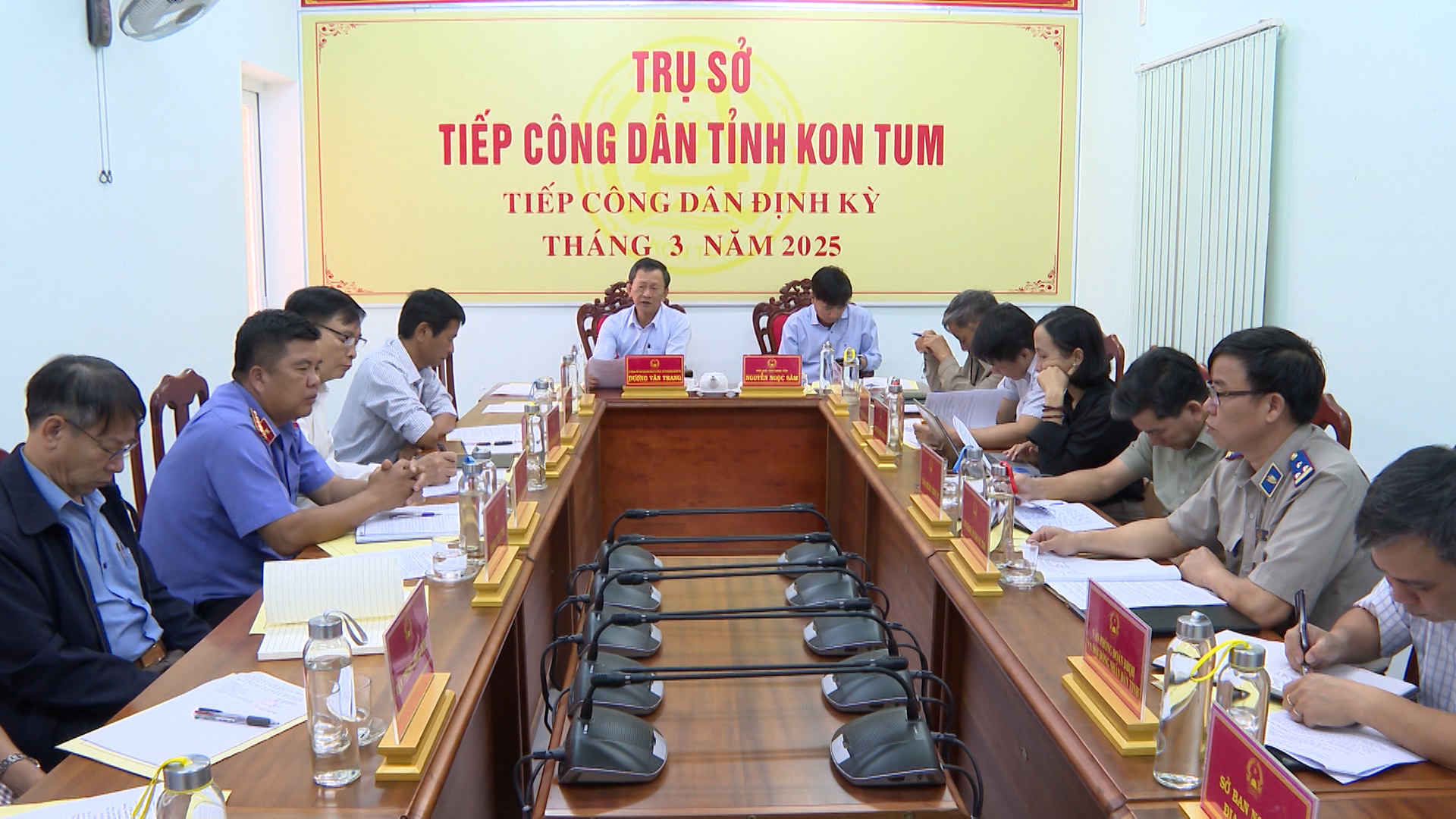

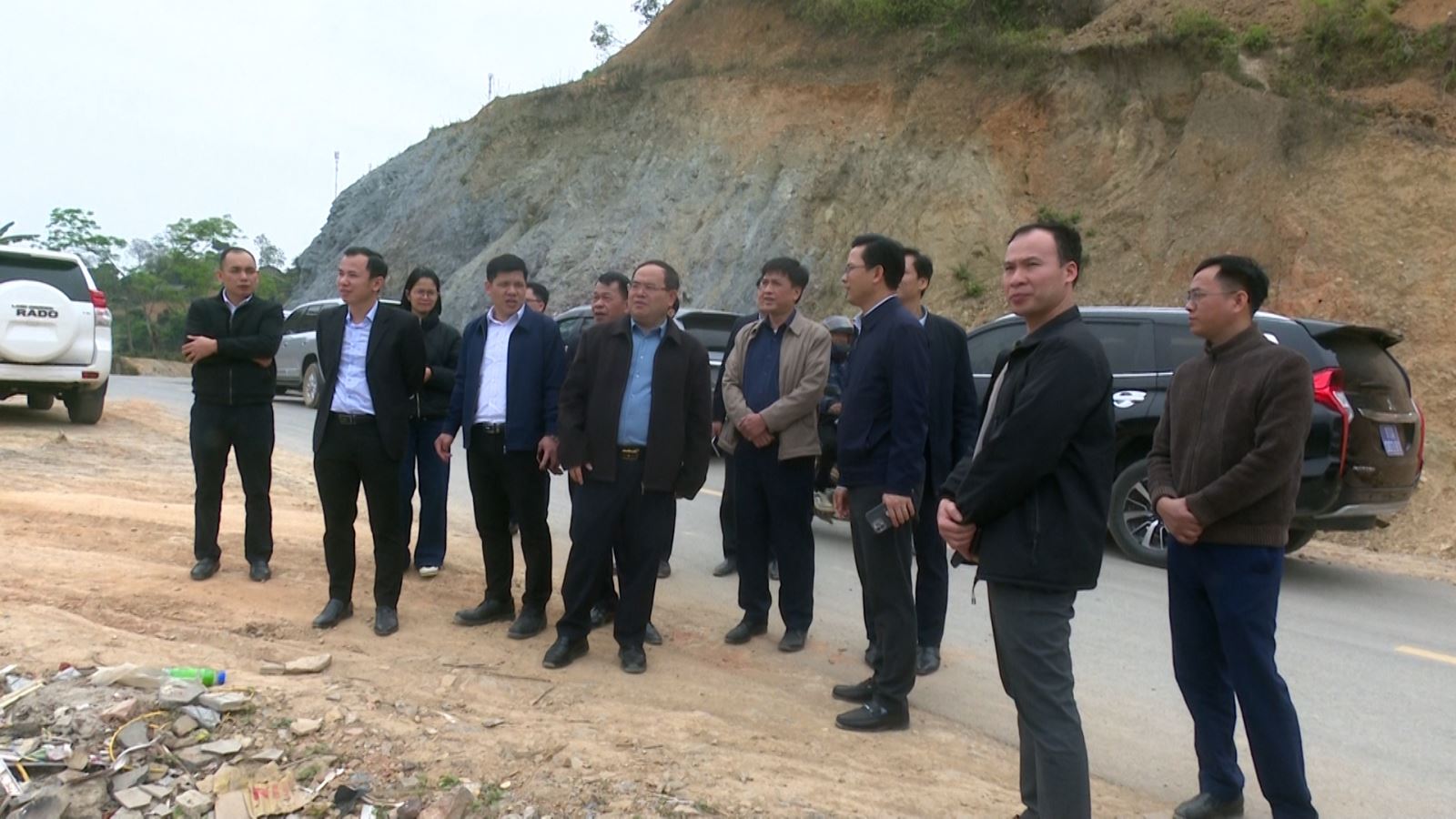

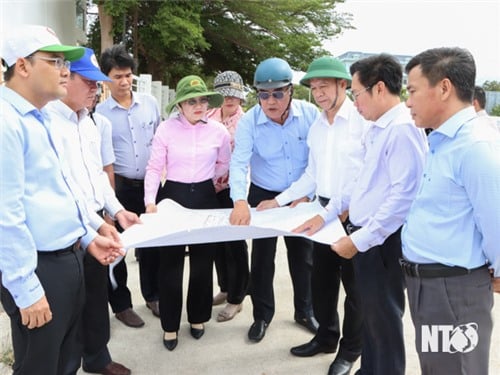




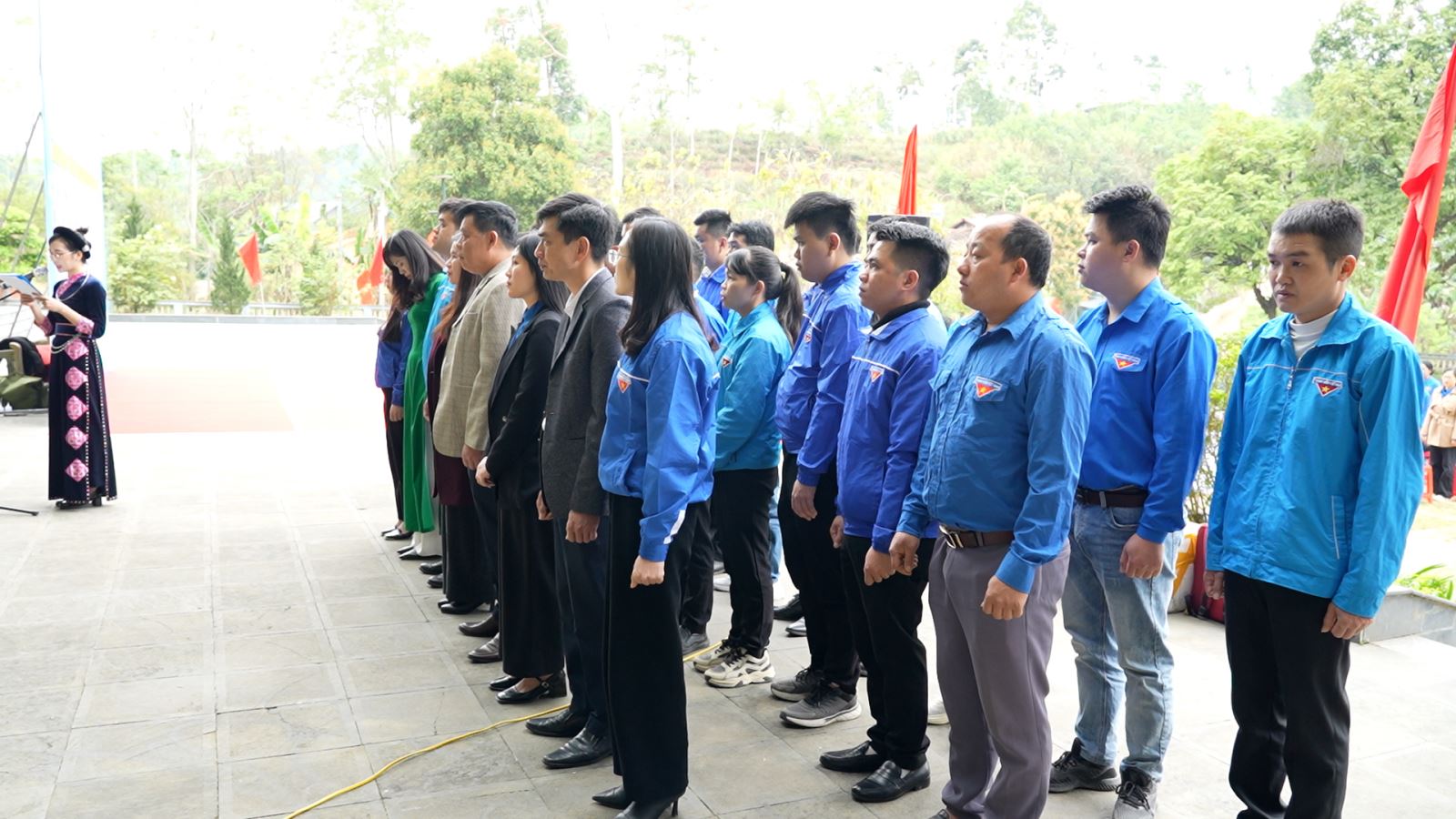


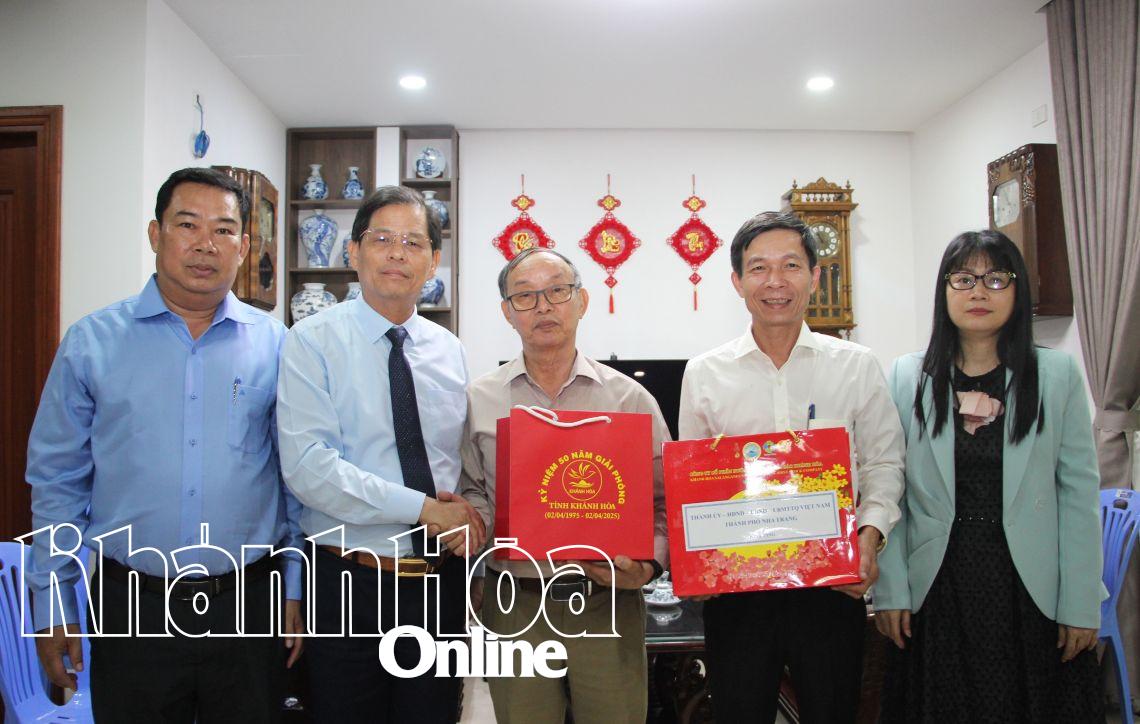


![[Photo] Relatives of victims of the earthquake in Myanmar were moved and grateful to the rescue team of the Vietnamese Ministry of National Defense.](https://vstatic.vietnam.vn/vietnam/resource/IMAGE/2025/4/2/aa6a37e9b59543dfb0ddc7f44162a7a7)












































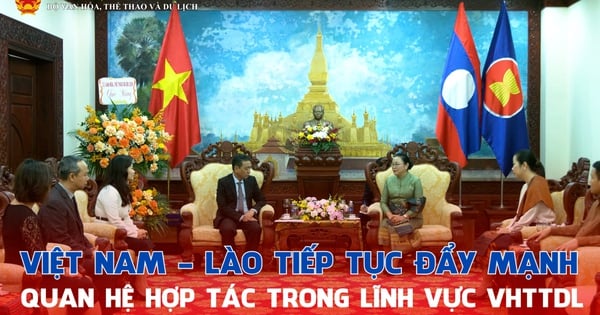

















Comment (0)